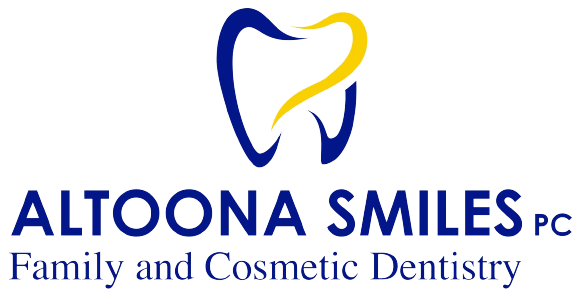Most people know that good oral hygiene is an essential part of maintaining healthy teeth and gums. However, did you know there are also some habits that can actually harm your teeth? Even if you brush and floss regularly, there are some habits that can undo all of your hard work. In this blog, we will discuss how the teeth can be damaged and 5 habits that could be damaging your teeth.
Tooth Enamel: Strong But Destructible
Tooth enamel is one of the hardest and most durable substances in the human body, with a rating of 5 on the Mohs scale of mineral hardness. It protects the teeth from damage, decay, and sensitivity. However, even though tooth enamel is extremely strong, it is still susceptible to damage due to parafunction.
Parafunction is any activity that involves using the teeth for something other than biting and chewing food, such as clenching, grinding, or biting hard objects. These actions put excessive force on the teeth, which can cause damage to the enamel.
The enamel is composed of hydroxyapatite, a mineral that is highly resistant to acid and wear. However, the constant grinding and clenching of teeth that occurs with parafunction can cause microscopic cracks in the enamel, which can eventually lead to chipping, cracking, and even fractures.
In addition to physical damage, parafunction can also lead to sensitivity and discomfort. The constant pressure and wear on the enamel can cause the dentin, the sensitive tissue underneath the enamel, to become exposed. This can result in sensitivity to hot and cold foods and drinks, as well as discomfort when biting or chewing.
5 Damaging Habits
Brushing your teeth too hard
Brushing your teeth is an essential habit for keeping your mouth healthy, but brushing too hard can have the opposite effect. Doing this can damage the enamel on your teeth, making them more prone to decay and cavities. Not only that, but brushing too hard can also make your gums sore and cause them to recede. When your gums recede, this allows bacteria to collect along the gum line, which can ultimately lead to gum disease. To prevent damaging your tooth enamel and gums, it’s best to use gentle circular motions and a soft-bristled toothbrush rather than vigorous scrubbing. Also, use toothpaste that contains fluoride to strengthen your teeth and protect them from cavities. Taking the time to regularly brush your teeth with care and consideration can help keep your mouth in top shape!
Chewing on Ice

Eating ice can do more than just make your teeth cold – it can also damage them. Chewing on hard, solid objects like hard candies, popcorn kernels, and especially ice cubes puts extreme strain on the teeth. Over time, this damages the enamel and can lead to cavities. Additionally, chewing on ice or other hard objects can actually cause chips or fractures in the tooth. If you’re fond of chewing on sometime, try sugar-free gum or as an alternative so that you don’t end up with an emergency visit to the dentist.
Nail Biting
Nail biting is a habit that many of us might be guilty of having. Despite the fact that many people think nail biting only harms their nails, it’s a habit that can cause lasting damage to the teeth and gums, from cavities to jaw pain. For starters, nail biting can weaken the enamel and lead to tooth damage or decay. Additionally, the jaw is forced in an unnatural position when biting one’s nails, which will lead to pain in the joint. Over time, this can even lead to temporomandibular joint dysfunction (TMD). To avoid this habit, try to keep your nails trimmed short and clean. You can also try using a bitter-tasting nail polish to discourage nail biting.
Grinding your teeth
Grinding your teeth, or bruxism, is an unconscious habit that can really damage the health of your teeth. Like nail biting, bruxism wears down the enamel on your teeth, and is associated with pain in the temporomandibular joint (TMJ). TMJ disorders can cause issues like chronic pain, clicking noises in your jaw when opened and closed, and headaches. Regularly grinding or clenching your teeth can also lead to chips or cracks in the enamel, as well as tooth sensitivity. To avoid these problems, it’s important to be mindful of any grinding habits you may have and seek help from a dentist if necessary. Often times, bruxism is diagnosed during a dental exam from wear patterns on the teeth. In these cases, your dentist will likely recommend wearing a night guard to protect your teeth and jaw. It is also recommended to work on stress management to prevent or decrease teeth grinding.
Using your teeth as tools

One final habit that can damage your teeth is using them as tools. Simply stated, your teeth were not designed to be used as tools– unfortunately, far too many people make the mistake of thinking otherwise! From prying open a stuck jar lid to chomping open that pesky packaging, it might seem like a convenient go-to— until you experience painful consequences. Putting too much pressure on your precious pearly whites can quickly cause them to chip or crack as they’re simply not designed for such use. To avoid this habit, always use the appropriate tools to open package. Keep scissors on hand so that you don’t have to resort to using your teeth.
In Conclusion
In conclusion, these five habits can cause significant damage to your teeth. By avoiding these habits, you can maintain healthy teeth and gums. Remember to brush your teeth gently, avoid chewing on ice, manage your stress levels to avoid teeth grinding, stop biting your nails, and use appropriate tools instead of your teeth. By following these tips, you can maintain a healthy and beautiful smile for years to come. Additionally, regular dental check-ups and professional cleanings are always recommended to maintain good oral health.







